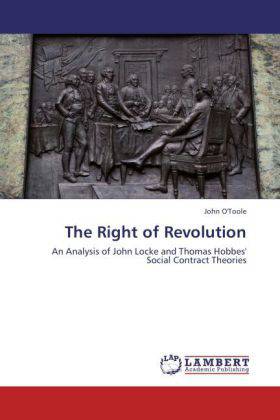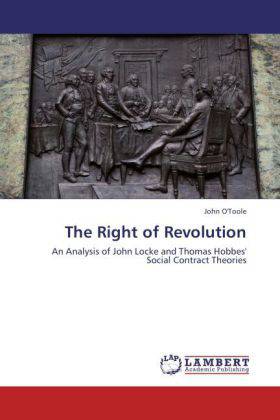
Door een staking bij bpost kan je online bestelling op dit moment iets langer onderweg zijn dan voorzien. Dringend iets nodig? Onze winkels ontvangen jou met open armen!
- Afhalen na 1 uur in een winkel met voorraad
- Gratis thuislevering in België vanaf € 30
- Ruim aanbod met 7 miljoen producten
Door een staking bij bpost kan je online bestelling op dit moment iets langer onderweg zijn dan voorzien. Dringend iets nodig? Onze winkels ontvangen jou met open armen!
- Afhalen na 1 uur in een winkel met voorraad
- Gratis thuislevering in België vanaf € 30
- Ruim aanbod met 7 miljoen producten
Zoeken
The Right of Revolution
An Analysis of John Locke and Thomas Hobbes' Social Contract Theories
John O'Toole
Paperback | Engels
€ 48,45
+ 96 punten
Omschrijving
The right of revolution in the social contract theories of Thomas Hobbes and John Locke is a curious topic. This paper discusses the differences and similarities between the two philosophers' discussions of this topic. It is argued that Hobbes and Locke differ most drastically on the notion of who the sovereign is. While Hobbes prefers to establish the sovereign as a demigod, Locke understands the sovereign as a mortal, and thus fallible, man. It is because of this distinction that Hobbes and Locke disagree on the notion of the right of revolution. Furthermore, the American Founding Fathers, including James Madison and Thomas Jefferson, inherited Locke's perspective on this matter when arguing for the independence of the colonies. Finally, it is the conclusion of this paper that this notion of the right of revolution continues today, when observing the numerous political revolutions around the world.
Specificaties
Betrokkenen
- Auteur(s):
- Uitgeverij:
Inhoud
- Aantal bladzijden:
- 96
- Taal:
- Engels
Eigenschappen
- Productcode (EAN):
- 9783847343004
- Verschijningsdatum:
- 13/01/2012
- Uitvoering:
- Paperback
- Formaat:
- Trade paperback (VS)
- Afmetingen:
- 152 mm x 229 mm
- Gewicht:
- 149 g

Alleen bij Standaard Boekhandel
+ 96 punten op je klantenkaart van Standaard Boekhandel
Beoordelingen
We publiceren alleen reviews die voldoen aan de voorwaarden voor reviews. Bekijk onze voorwaarden voor reviews.











